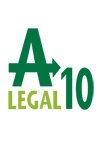Best Father's Rights Lawyers in Bree
Share your needs with us, get contacted by law firms.
Free. Takes 2 min.
Free Guide to Hiring a Family Lawyer
List of the best lawyers in Bree, Belgium
About Father's Rights Law in Bree, Belgium
Fathers rights in Bree are governed by Belgian family law, which applies across the country. Key ideas are parental authority, custody and residence of children, contact rights, child maintenance, and paternity. Belgian law aims to protect the best interests of the child while recognising the rights and duties of both parents. Whether parents are married or not affects some formal steps, but courts and public services in Limburg - including the Family Court that covers Bree - use the same national legal framework.
Why You May Need a Lawyer
Family law issues are often emotionally charged and can have long-term consequences for you and your child. You may need a lawyer if you face any of the following situations:
- You need to establish or contest paternity.
- You are negotiating custody, residence or parental authority with the other parent.
- You need to set, modify or enforce child maintenance obligations.
- The other parent is preventing contact or is threatening to move the child abroad.
- You are dealing with emergency measures, child protection procedures, or a dispute that could lead to court proceedings.
A lawyer can explain legal options, prepare court documents, represent you in hearings, and help you organise evidence and a practical parenting plan.
Local Laws Overview
Family law questions in Bree are decided under Belgian federal law and EU instruments when cross-border issues arise. The most relevant legal points are:
- Parental authority: Both parents generally share parental authority after recognition of paternity or marriage. Parental authority covers major decisions about the childs education, health and residence.
- Paternity: A father can be legally recognised at the time of birth, or established later by a voluntary declaration or by a court procedure. Recognition gives parental rights and duties; if disputed, courts can order DNA testing.
- Residence and custody: Decisions about where a child lives are made based on the childs best interests. Belgian courts favour arrangements that preserve the childs relationship with both parents, and joint custody or shared care is common where feasible.
- Contact and visitation: If a child lives primarily with one parent, the other parent usually has the right to reasonable contact. Courts can set detailed schedules or require supervised contact in certain cases.
- Child maintenance: Both parents must support their child financially. Maintenance is calculated on the needs of the child and the means of the parents. Courts use guidelines and case law rather than a single national formula.
- Mediation: Courts and public services encourage family mediation to reach agreements outside court. A signed parenting plan or agreement can be made enforceable by the court.
- Enforcement and urgent measures: Belgian courts can issue orders for emergency accommodation, provisional arrangements, or to enforce maintenance. The Youth Court deals with protection measures for minors.
- Cross-border matters: For international disputes involving EU countries, EU rules on parental responsibility and child abduction apply. Hague Convention rules may apply for non-EU countries.
Frequently Asked Questions
How do I establish paternity in Bree if I am not married to the mother?
You can voluntarily recognise the child at the civil registry or at a municipality office. If recognition is disputed, you can ask a court to determine paternity. A judge may order a DNA test. Once paternity is established, parental rights and obligations follow.
What rights does an unmarried father have?
An unmarried father who has recognised paternity normally has parental authority or can obtain it, and has rights to custody, residence and contact. If he has not recognised the child, he must first establish paternity to exercise these rights.
How do Belgian courts decide who the child will live with?
Courts decide based on the childs best interests. They consider the childs age, emotional ties, stability, practical arrangements, school and health needs, and each parents ability to care for the child. Joint custody or shared residence is possible if it serves the childs welfare.
Can I get a court order for regular visitation if the other parent refuses?
Yes. If parents cannot agree, you can ask the Family Court to set a contact schedule. If there are safety concerns, the court can order supervised contact or restrictions. A lawyer can help you prepare the request and evidence.
How is child maintenance calculated in Belgium?
There is no single fixed national table, but judges use Belgian guidelines and case law that take into account the childs needs, the standard of living the child would have had, and both parents incomes and expenses. Lawyers often prepare a detailed budget to support maintenance requests.
What if the other parent moves abroad with our child?
Relocation that affects the childs habitual residence may require the other parents consent or a court decision. For EU moves, Brussels II bis rules and the Hague Convention can be relevant. If a parent removes a child unlawfully, urgent court measures or return proceedings may be possible. Get legal help quickly in these cases.
Can I change custody or maintenance orders later?
Yes. If circumstances have materially changed - for example, changes in income, health, or the childs needs - you can ask the court to modify custody or maintenance orders. Courts reassess the childs best interests when considering modifications.
What if the other parent does not pay child support?
There are enforcement mechanisms. You can request enforcement through the Family Court, or ask social services or enforcement agencies to collect maintenance. Courts can convert arrears into enforceable orders, and in serious cases there are seizure or collection measures.
Is mediation mandatory before going to court?
Mediation is strongly encouraged and sometimes required by courts or judges to try to reach an agreement. However, mediation is voluntary in terms of agreement. If mediation fails, you can still bring the matter to court. Legal advice can help you decide whether mediation is appropriate.
How much will a lawyer cost and can I get legal aid?
Lawyer fees vary depending on complexity and lawyer experience. Belgium offers legal aid - in Dutch rechtsbijstand - to people with limited means. Eligibility depends on income and the type of case. Contact the local legal aid office or bar association in Limburg for specific information.
Additional Resources
Below are organisations and services that can be useful for someone in Bree looking for help with fathers rights issues:
- Family Court at the Tribunal of First Instance in Hasselt - handles family and custody cases for the region.
- Jeugdrechtbank in Hasselt - for child protection and youth law matters.
- OCMW Bree - the local public welfare centre can offer social support and practical information.
- Limburg Bar Association - to find a lawyer experienced in family law in your area.
- Legal aid office - for information about eligibility for rechtsbijstand.
- Accredited family mediators - for out of court agreements and parenting plans.
- Flemish legal information services and government justice information - for guidance on procedures, forms and rights.
Next Steps
If you need legal assistance with fathers rights in Bree, consider the following practical steps:
- Gather documents: birth certificate, any recognition documents, written agreements, school and medical records, communication records, income evidence and any court orders.
- Seek initial legal advice: contact a family lawyer in Limburg or the local bar association for a consultation. Ask about likely outcomes, timeframes and costs.
- Consider mediation: if safe and appropriate, mediation can save time and preserve cooperative parenting arrangements. A mediator can help you draft a parenting plan that a court can formalise.
- Apply for legal aid if you have limited means - check eligibility with the local legal aid office.
- If immediate protection is needed for a child, contact the police, the Youth Court or seek urgent judicial measures through a lawyer.
- Keep clear records of all contacts and incidents involving the child and the other parent, as this evidence can be important in negotiations or court.
Facing a family law issue is stressful. Taking organised steps and getting informed legal support early improves your ability to protect your rights and the childs best interests.
Lawzana helps you find the best lawyers and law firms in Bree through a curated and pre-screened list of qualified legal professionals. Our platform offers rankings and detailed profiles of attorneys and law firms, allowing you to compare based on practice areas, including Father's Rights, experience, and client feedback.
Each profile includes a description of the firm's areas of practice, client reviews, team members and partners, year of establishment, spoken languages, office locations, contact information, social media presence, and any published articles or resources. Most firms on our platform speak English and are experienced in both local and international legal matters.
Get a quote from top-rated law firms in Bree, Belgium — quickly, securely, and without unnecessary hassle.
Disclaimer:
The information provided on this page is for general informational purposes only and does not constitute legal advice. While we strive to ensure the accuracy and relevance of the content, legal information may change over time, and interpretations of the law can vary. You should always consult with a qualified legal professional for advice specific to your situation.
We disclaim all liability for actions taken or not taken based on the content of this page. If you believe any information is incorrect or outdated, please contact us, and we will review and update it where appropriate.










